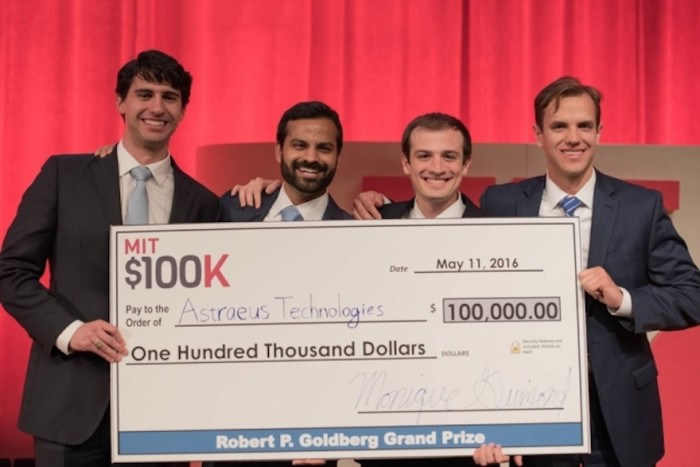Astraeus Technologies, a team of students from MIT and Harvard University, has created a lung cancer “breathalyzer” that screens for certain volatile organic compounds found in the breath of individuals who have lung cancer.
The “breathalyzer” is called the L CARD (Chemically Actuated Resonate Device). Just a single breath can reveal the compounds, which then change the radio frequency identification signal of the near-field communication tag, notifying the connected smart phone if the specific compounds are present.
“The L CARD reacts and sends instantaneous information to the physician that further attention is required,” said Joseph Azzarelli, the MIT PhD student who invented the device.
According to the World Health Organization, lung cancer is the deadliest cancer in the USA. Graham Lieberman, an MBA student at Harvard Business School who is part of the team, explained, “Part of the reason lung cancer is so deadly is that the current gold standard screening test — the low-dose CT scan — is wholly inadequate in a variety of ways”.
CT scans are too expensive. They have a high false-positive rate, and they expose patients to radiation that could intensify their risk of cancer. Lieberman says that because of these issues, only 1.6 of the 94 million Americans at risk of getting lung cancer, ever get scanned. He adds, “A cheaper, safer screening device can be applied to a much larger percentage of that population”.
The L CARD is the size of a postage stamp, and according to team member Jay Kumar, a student at Harvard Medical School, is ten times more accurate and can be made for less than one dollar.
The team hopes to eventually sell the device directly to hospitals and clinics.







